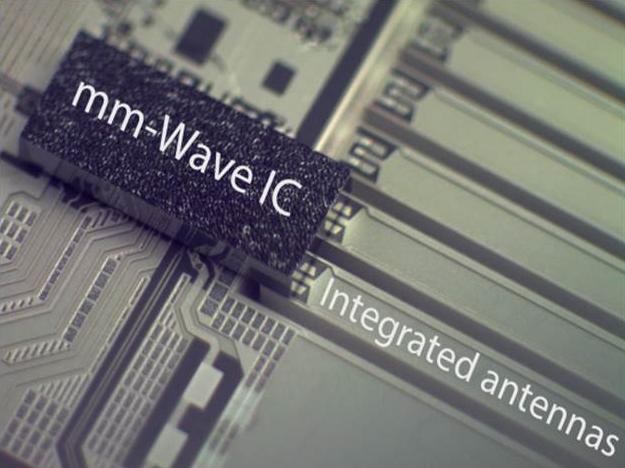mm-wave sensors
Contact: Marco Spirito

(Sub)mm-wave for imaging: The capacity to produce accurate images through obstacles at optical wavelengths (clothes, cardboard cartons, wood, thin walls) as well as during bad weather (fog and heavy rain), allows (sub)mm-wave systems to provide a smart ?eye? to support security and transport applications.
(Sub)mm-wave for sensing: Provide higher resolution and sensitivity when measuring biological tissue composition, increasing the capability for early detection of diseases, leading to higher percentage of successful cure and lower probability of second intervention, resulting from intra-operation misjudgement.
Projects under this theme
Energy Efficient Radar TX
In the next years, advanced driver assistance systems (ADAS) are expected to transform cars into securely-connected self-driving robots with the capability of sensing the environment, thinking, and acting autonomously. CRUISE facilitates transforming to this near era.
History
Energy Efficient Wideband Transmitter, NXP Partnership ‘Advanced 5G Solutions’
This project providing enhanced average efficiency in wideband wireless transmitters while withstanding the changing load conditions that can occur in handheld devices and MIMO/smart-antenna communication systems.
THz silicon-integrated camera for low-cost imaging applications
Develop a real-time multi pixel passive radiometer, operating between 0.1 THz and 1THz, integrated in a silicon based technology, with temperature resolution better than 1K
Dotseven
DOTSEVEN is a very ambitious 3.5 year R&D project targeting the development of silicon germanium (SiGe) heterojunction bipolar transistor (HBT) technologies with cut-off frequencies (fmax) up to 700 GHz.
